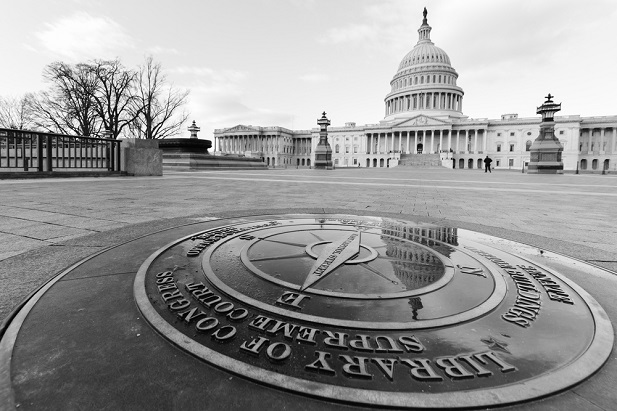 Employers with fewer than 100 workers would make the payroll contributions into newly created Universal Personal, or UP Accounts, which would be overseen by the federal government. (Photo: Shutterstock)
Employers with fewer than 100 workers would make the payroll contributions into newly created Universal Personal, or UP Accounts, which would be overseen by the federal government. (Photo: Shutterstock)
An influential voice has joined a growing chorus on Capitol Hill calling for mandated sponsorship of retirement plans throughout most of the private sector.
Sen. Amy Klobuchar, D-MN, who is seeking the Democratic nomination for president in 2020, co-introduced legislation last week that would mandate sponsorship of retirement plans for businesses with more than 10 employees.
The Saving for the Future Act, which has also been introduced in the House of Representatives, mirrors a primary feature of The Automatic Retirement Plan Act of 2019, a bill sponsored by Ways and Means Chairman Richard Neal, D-MA, that also mandates retirement plan sponsorship for businesses with more than 10 employees.
But Klobuchar's bill goes further than Neal's by requiring employers to contribute to plans.
Under the Saving for the Future Act, employers that don't sponsor a retirement plan would be required to contribute $0.50 for every employee hour worked, or $1,000 a year based on a 40-hour work week. Neal's bill, which may be considered by Ways and Means as early as this summer, does not require sponsors to contribute to plans.
Employer contributions would increase to $0.60 cents per hour worked after two years, and would subsequently be indexed to wage inflation.
Employers with fewer than 100 workers would make the payroll contributions into newly created Universal Personal, or UP Accounts, which would be overseen by the federal government.
Workers would be automatically enrolled in the plans at a 4 percent deferral rate, which automatically escalates to 10 percent over time. The bill includes an opt-out provision, and gives workers the ability to adjust savings rates.
The first $2,500 of savings would be diverted to UP-Savings Accounts, which create an emergency cash fund from which workers could draw.
“The Saving for the Future Act will help close the wealth gap, prepare families in case of an emergency, and set workers up for a successful retirement,” Klobuchar said in a press statement. The bill is co-sponsored by Sen. Chris Coons, D-DE, in the Senate.
Employers with fewer than 100 workers would receive a tax credit worth 50 percent of the minimum contribution for the first 15 workers, and another 25 percent credit for the contributions to the next 15 workers.
The credits are estimated to cost up to $250 billion in tax revenue over 10 years, according to a summary of the bill. To pay for that, the bill would raise the corporate tax rate from 21 percent to 23 percent, and raise the top individual tax rate from 37 percent to 39.6 percent, where it was before the Tax Cut and Jobs Act passed in 2017.
The bill's summary does not prescribe compliance enforcement, but does say that businesses that already sponsor retirement plans would not be impacted. Under Neal's bill, compliance would be enforced through excise taxes.
Analysis by Third Way, a center-left Washington D.C. based think tank, shows the minimum employer contribution and 4 percent employee contribution would yield $774,000 in savings over a lifetime of work. AARP and the SEIU are among the organizations supporting the Saving for the Future Act.
Upon retirement, workers have the option of annuitizing savings, setting up scheduled automatic withdrawals, or converting savings into monthly income that lasts until Social Security claims begin, allowing beneficiaries to delay claiming.
Chair Neal's bill would require at least 50 percent of savings be annuitized into lifetime income guarantees.
The National Federation of Independent Businesses, the U.S. Chamber of Commerce, and other pro-employer groups have yet to weigh in on the Saving for the Future Act.
Sen. Klobuchar also recently unveiled a $1 trillion infrastructure plan that would be funded by raising the corporate tax rate from 21 percent to 25 percent.
READ MORE:
Open MEPS or not? Let the legislative sausage-making begin
© 2025 ALM Global, LLC, All Rights Reserved. Request academic re-use from www.copyright.com. All other uses, submit a request to [email protected]. For more information visit Asset & Logo Licensing.








